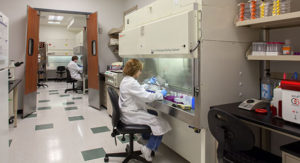Geneoscopy Starts Human Colorectal Cancer Screening Trial
Always intended for humans, Geneoscopy accelerated development of it's colorectal cancer screening device through clinical trials for pets. Now they've reached a major milestone to test the effectiveness of their technology on human data.
Geneoscopy has announced the enrollment of its first patients for it’s medical device trial. The clinical study seeks to evaluate the safety and efficacy of Geneoscopy’s noninvasive, at-home diagnostic screening test to successfully detect colon cancer risk.
Colonoscopy remains the gold-standard for CRC screening in the US, yet this method is frequently met with patient aversion due to it being an invasive procedure. Geneoscopy have designed an alternative which enables “at-home collection” of important diagnostic data, and their innovative diagnostic device was granted Breakthrough Device Designation by the U.S. Food and Drug Administration (FDA) in January of 2020.
“The ultimate goal of colorectal screening is cancer prevention, but this requires diagnostic screening options with the sensitivity to identify clinically relevant pre-cancerous lesions, including advanced adenomas,” said Dr. Erica Barnell, Geneoscopy’s co-founder and Chief Scientific Officer in a press release.
Responsible for over 50,000 deaths annually, colorectal cancer (CRC) is the second leading cause of cancer related death in the United States. Early detection and treatment are crucial to improve survival; however, most newly diagnosed patients suffer from advanced disease.
“When it comes to detecting advanced adenomas, noninvasive tests are not currently hitting a 50% threshold. Until now, only colonoscopy can detect advanced adenomas reliably,” writes Dr. David Lieberman in a press release, Professor of Medicine, Division of Gastroenterology and Hepatology at the Oregon Health Sciences University School of Medicine.
“A noninvasive, at-home option that successfully detects these pre-cancerous lesions would represent an important, positive step in early detection for colorectal cancer prevention.”
Currently available noninvasive screening methods lack sufficient levels of sensitivity to effectively and reliably detect both early-stage CRC and high-risk precancerous lesions, including advanced adenomas which are a precursor in up to 70% of CRC cases.
Geneoscopy’s initial clinical study demonstrated high sensitivity of its multifactor RNA-FIT assay compared with colonoscopy findings, demonstrating 95% sensitivity for colorectal cancer, 62% sensitivity for advanced adenomas, and 25% sensitivity for other non-advanced adenomas with an 85% specificity for no findings on a colonoscopy.
The startup’s CEO, Andrew Barnell, told the St. Louis Business Journal, “This is really the most major step we’ve ever taken in translating early-stage research and development to something that can be delivered to patients.”





